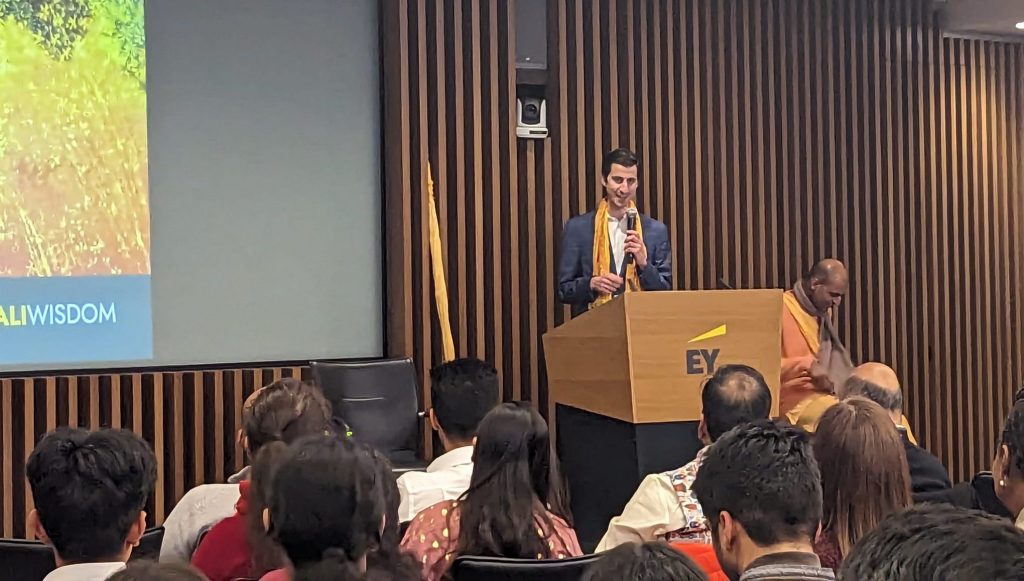It’s been a little while since I left my Big 4 job, and I have been reflecting on the immense value it contributed to my career. I’m sharing this article for others considering Big 4 audit, for those already in audit who would like to learn from my experiences, and anyone that’s curious as to what the experience is like!
Keep reading to the end to find out why I left, but for now, I’ll dive right in.
1 – How the world of business really works

When you’re in audit, you’re thrown into the depths of various companies. You need to understand the commercial reality of how the company makes money and the internal business processes that support this in order to audit them effectively. This comes from reading prior year audit work, speaking to key people at levels (from junior to C-suite) involved in the process, and using data analysis to follow the numbers.
As you build up experience, you start to become more aware of the interdependencies of parts of the business and their relation to the outside world, quickly identifying risks and uncertainties that may disrupt or put pressure on areas of the business and the controls and other factors that can help to mitigate this.
After a few clients, you begin to see how vastly differently companies operate behind the scenes, with many having almost no resemblance to ‘textbook’ companies we’ve seen in our studies.
Some client contacts will patiently justify why things are done a certain way, often being accounting software set up incorrectly, a mess of legacy systems that are incapable of talking to each other, or sometimes simply because they prefer Excel!
2 – Professional Scepticism & Curiosity

Central to everything we do in audit is having scepticism, and this is baked into our mindsets when we are undertaking any work. In practice, it means we have to remain curious and actively challenge what we see by considering whether it makes sense in terms of the bigger picture and seeking out contradictory evidence, thinking not only about what is there but what might be missing.
After leaving audit, this mindset has allowed me to build an understanding of new situations quicker than anyone expects me to be able to, and it’s all due to being trained to ask “Better questions”, something we were taught on our first day of employment as grads.
3 – The power of people
Big 4 firms are pools of exceptional talent and highly diverse, united through a common commitment to our firms’ missions. Being immersed in this reveals the power that values and a commitment to DE&I to foster a sense of belonging can have.
Having worked on a client where we identified fraud, I saw how the culture of the firm allowed a team of the people best placed to help could be pulled together in a matter of weeks. What was even more impressive is how we all managed to work together cohesively under these very testing situations, a credit to the culture and shared values of the firm allowing us to bridge the perceived differences between us.

4 – A respected CV
I was told many times that having a ‘Big 4’ background carries a lot of weight in the corporate world. It was only after leaving that I came to appreciate just how much weight that carries.
Since moving to consulting and hearing countless professional introductions given by client contacts and consultants, I was astounded at how many include their time in a Big 4, even if that was more than a decade ago!
On top of the firm’s name, all Big 4 audit graduate schemes require us to work towards a professional qualification, in my case to become an ICAS-qualified Chartered Accountant. Someone in my new company told me at some work drinks that the chartered accountants that he’s seen join the company have stood out as being more adaptable when thrown into different situations – true testimony to the business acumen and adaptable skills one gains through the training.
5 – Side of desk experience

Some of the most rewarding times at EY have been when I was working in side-of-desk roles. These have allowed me to do something different and experience leadership roles even though I was quite junior in the firm. Various roles I had were co-chair of the EY Hindu Network, department wellbeing champion, peer group lead, a helper at the EY Student Induction, and leading sessions on Innovation to new joiners to my department.
I greatly enjoyed being a committee member and then the co-chair of the EY Hindu Network, which allowed me to organise events, implement new initiatives, such as a bhajan night, regular newsletter and sewa (charity), as well as have an input in EY’s DE&I direction and be on a panel in two multi-faith events.
Some further reading on my side-of-desk experiences:
Ancient values for the modern workplace
Co-hosting an all-people call: The power of connections
6 – Interpersonal skills and building rapport
In audit, our business is to poke around in someone else’s business and ask often difficult questions about things they probably prefer not to talk about with the aim of finding errors, bias, and fraud. It won’t come as a surprise to know that most people don’t like being audited.
Given this, building rapport and a positive working relationship with people in our clients can be challenging at the best of times. From my very first week working, I was put in front of a treasury manager to ask annoying questions about bank loans – from that first encounter, I kept building my abilities to better understand and connect with people, with countless opportunities to put this into practice.
Why did I leave?
I wasn’t happy about leaving my Big 4 job, it was a very comfortable environment of people that genuinely care about each other that felt like a second home, despite the fast paced and intense nature of the work!
Ultimately, my decision to leave was because an opportunity that was too good to refuse came knocking. After speaking to a few senior people about it, they helped me to see that this would be the right move in my career. A short while later, I definitely agree and I’m grateful for their guidance!
Want to know more about Big 4 audit? Should you start your career in Big 4 audit?


Leave a Reply
You must be logged in to post a comment.